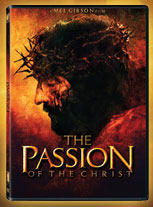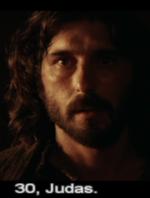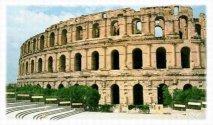 I saw The Passions of the Christ about two weeks ago and it was quite a different kind of movie. It seems like Mel Gibson became an expert in illustrating pain, sacrifice and suffering.
I saw The Passions of the Christ about two weeks ago and it was quite a different kind of movie. It seems like Mel Gibson became an expert in illustrating pain, sacrifice and suffering.I'm not proficient in theology, but the story of Jesus (PBUH) as described by the movie was exactly what I have learnt about the matter in the Islamic tradition. The fundamental difference is of course on the notion of Jesus (PBUH) himself; Islam, categorically and by definition of God, refuses the idea of a "son of God".
The movie used the original Aramaic language spoken by Jesus (peace be upon him) and I discovered it was so close to modern Arabic. Well it was not really a surprise since it's just another semetic language like Hebrew and Arabic. What was suprising though was the striking similarity: with careful scrutiny, an Arabic (and for the matter maybe also a Hebrew) speaker can probably recognise 40% of what they were saying.
 In the beginning of the movie there is a discussion between Judas and some Jewish clerics where they say "thlatheen, yehouda" that is "30, Judas". Arabic for this is "ثلاثين، يهودا" which reads exactly the same.
In the beginning of the movie there is a discussion between Judas and some Jewish clerics where they say "thlatheen, yehouda" that is "30, Judas". Arabic for this is "ثلاثين، يهودا" which reads exactly the same.In Aramaic, Jesus (PBUH) seems to be called "Yeshua". His name in Arabic Yesou' "يسوع". I should acknowledge that I still don't know the diffrence between Issa (عيسى) and Yessou', a commentator may have the nicety to clarify.
Other examples are: sallo (pray/صلوا), malou (what's wrong with him/ماله), beini ou beinek (between me and you/بيني و بينك), la (no/لا), man abak (who is your father/من أباك), ana howa (I am he/أنا هو), koum (get up/قم), akhdhou al akh (they seized him "the brother"/أخذوا الأخ).
I had some discussions with some Christian friends and they appear to believe firmly that Muslim's God is different from theirs, stressing the fact that it's called "Allah".
What many seem to ignore is that Allah or Al-lah (الله) is just Arabic for "The God", therefore "my God" is Arabic for Ilahi (إلهي). Around the end of the movie, Jesus (PBUH) looks up the sky and screams for God's help saying: "Ilahi!".. I hope you got the point by now.


